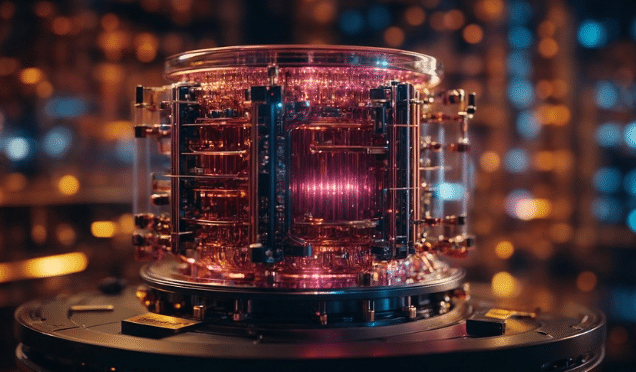Article

Are We Heading for an AI Dot-Com Bubble?
Bespoke Investments recently noted that the six-month performance gap between the S&P 500 and the S&P 500 Equal Weight Index is at its highest since March 2000, which was around the time of the dot-com bubble burst. The S&P 500 is a market-capitalization-weighted index where larger companies have a greater influence on the index’s performance. In contrast, the S&P 500 Equal Weight Index gives equal weight to all 500 companies, providing a more balanced representation. This difference results in the S&P 500 being more influenced by the largest companies, while the equal-weighted index highlights the performance of smaller companies more prominently.
AI: A Tool for Industry Innovation
Artificial intelligence (AI) is revolutionizing industries by enabling the creation of better tools and solutions. Unlike the speculative investments of the dot-com era, today’s AI advancements are grounded in practical applications with real-world benefits. AI is driving:
- Better Tool Creation: Across various sectors, AI is enhancing productivity, efficiency, and decision-making processes. For instance, AI is being used to optimize supply chains, personalize customer experiences, and even predict maintenance needs in industrial equipment (GO-Globe) (The Official Microsoft Blog) .
- Industry Transformation: AI technologies are leading to smarter operations, improved customer experiences, and innovative new products. In healthcare, AI is helping to develop new drugs faster and more accurately, while in finance, it’s improving fraud detection and customer service (Maginative) .
- Sustainable Growth: Continuous optimization through AI supports long-term value creation and business growth. Companies are now able to leverage AI to stay competitive and innovate at a pace that was not possible two decades ago (US About Amazon) (McKinsey & Company)
While the dot-com bubble partly involved the development of tools for a new network, its primary focus was on building that network. Most tools worked poorly due to inadequate hardware, and it was eventually realized that network hardware is relatively simple and inexpensive to produce. In contrast, AI chips are complex and costly to manufacture.
The Importance of AI Chips
The recent surge in market performance is primarily due to the growing demand for AI chips and the companies that can afford them. These chips are essential for developing and deploying AI technologies, and here’s why:
- High Barriers to Entry: Manufacturing high-quality AI chips is complex and expensive, with NVIDIA currently leading the market. They have recently announced a collaboration with AWS to create advanced AI infrastructure. (Amazon Web Services, Inc.) (US About Amazon) .
- Specialized Expertise: Designing and producing advanced AI chips requires specialized knowledge, limiting the number of companies that can compete effectively. (Maginative) .
- Strategic Investments: Companies investing in AI chips are typically those with significant resources and a strategic focus, making these investments more deliberate than the speculative bets of the dot-com era. The collaborations between tech giants highlight the strategic nature of these investments (Maginative) .
Benefits of Increased Competition in AI
If more companies could challenge current tech giants dominance and reduce their competitive advantage, it would actually be beneficial for the market in the long run. Here’s how increased competition would help:
- Drive Innovation: More competition would encourage companies to develop better products and technologies. This is already seen in sectors like cloud computing and consumer electronics, where competition has spurred rapid innovation (GO-Globe) .
- Lower Costs: With more players in the AI chip market, costs would likely decrease, making advanced AI technologies accessible to more companies and industries. This could democratize AI, allowing even small businesses to leverage these powerful tools (McKinsey & Company) (https://www.cnbc.com/2024/06/02/nvidia-dominates-the-ai-chip-market-but-theres-rising-competition-.html) .
- Market Stability: A diversified market with multiple strong competitors is more stable and less vulnerable to disruptions, reducing reliance on a single dominant player. This diversity can lead to a more resilient and adaptable industry overall (The Official Microsoft Blog) .
Although the performance gap between the S&P 500 and the S&P 500 Equal Weight Index is reminiscent of the dot-com bubble, the current market environment is very different. AI’s transformative role, the strategic significance of AI chips, and the potential benefits of increased competition all contribute to a more resilient and robust market. Therefore it is our opinion an AI bubble is unlikely at this time.

About the author
Steve Hepburn is a passionate financial advisor and a devout Christian, husband, and father of seven children. He is the managing partner of Drexel & Co. Financial Planning. He holds a degree in Economics, is a Certified Financial Planner (CFP), and a Registered Investment Advisor (RIA). With a strong interest in philosophy, theology, economics, and estate planning law, technology. When not running his financial planning firm, he is spending time farming a 64 acre property.

Having an honest, trusted, and knowledgeable advisor who can help you make smart decisions and create a path to your financial goals is the best way to secure your future and the future of those you care about.
